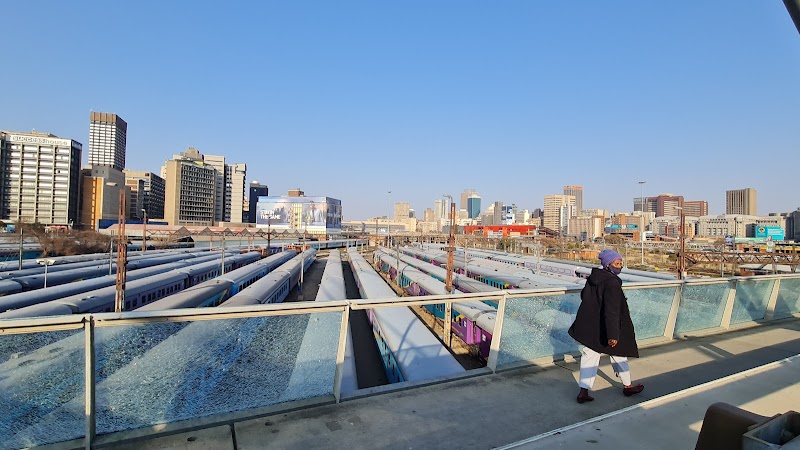
Rustenburg Mountain Bike Race: A Gritty Ride Through North West’s Rugged Terrain
The Rustenburg Mountain Bike Race challenges riders with a tough 45-kilometer course through rocky climbs and forested trails in South Africa’s North West Province. Combining rugged terrain and sweeping views, it’s a must for mountain bikers looking for a practical yet thrilling adventure.
Stay Hydrated Throughout
Carry at least 2 liters of water as water points are scarce along the course. Dehydration affects both focus and stamina on rocky terrain.
Use Proper Mountain Bike Tires
Opt for tires with aggressive tread to handle the rocky and loose surfaces found on the course for better grip and control.
Early Start to Avoid Heat
Begin in the morning to dodge the midday sun, especially in summer months when temperatures can spike quickly.
Prepare for Technical Sections
Practice technical skills such as rock rolls and quick descents; the course demands confidence navigating sharp turns and uneven ground.
Rustenburg Mountain Bike Race: A Gritty Ride Through North West’s Rugged Terrain
The Rustenburg Mountain Bike Race in South Africa's North West Province is more than a competition—it's a rugged engagement with terrain that tests skill, stamina, and resolve. This event snakes through varied landscapes around Rustenburg, offering riders a compact but fiercely demanding course that stretches approximately 45 kilometers with an elevation gain close to 800 meters. The route is a rolling dialogue with the environment, challenging riders on technical single tracks, rocky ridges, and winding forested paths where the scrub and indigenous trees keep watch like quiet sentinels.
Starting from the outskirts of Rustenburg, the course quickly ushers riders into a cockpit of rocky climbs that demand not just strength but precision and respect for the bike beneath you. Descents sharpen senses; loose stones and sudden dips push you to read the terrain carefully. The forested sections don’t just offer shade but an atmosphere thick with the scent of earth and the occasional rustle of wildlife daring to cross your path—a humbling reminder that you’re a guest passing through. Along the more open stretches, sweeping views of the Magaliesberg foothills unfold, the horizon stretching wide and patient.
Preparation is an essential part of success here. Hydration must be front of mind. There aren’t convenient water stops along the course, so carrying at least two liters is advisable. The terrain requires sturdy footwear—you need shoes with aggressive tread for both pedal grip and walking stretches over sharp rocks. Timing your ride to avoid the heat of midday, especially during South African summer months (December to February), can mean the difference between pushing through and overheating.
Weather adds its voice. Summer rains can turn trails slippery and unpredictably wild, asking for cautious descents and nimble handling. Early autumn and late winter offer cooler, drier riding conditions, safer but no less demanding.
This race is an invitation to engage with something fiercely itself, a raw and often unforgiving landscape that rewards preparation, respect, and resilience. It’s neither an easy sprint nor an indifferent grind—it’s a pulse racing conversation between rider and rock, muscle and mountain. Whether you’re a seasoned racer or a determined first-timer, the Rustenburg Mountain Bike Race promises a day carved from challenge and character, grounded in one of South Africa’s most striking outdoor arenas.
Nearby Trips
All Adventures
Boat Charters
Water Activities
Adventures near Rustenburg, North West Province
Discover the unique and memorable adventures that make Rustenburg, North West Province special.
Frequently Asked Questions
What type of terrain does the Rustenburg Mountain Bike Race cover?
The race course features diverse terrain including rocky climbs, loose gravel paths, technical single tracks, and forested trails, demanding careful navigation and solid bike control.
Is the Rustenburg Mountain Bike Race suitable for beginners?
While beginner riders can participate, the race is considered challenging due to technical sections and elevation gain. Novices should train and prepare accordingly or consider less technical local rides first.
Are there water points along the race course?
The race has limited to no official water stations, so riders must carry adequate water supplies to stay hydrated throughout.
What wildlife might I encounter during the race?
Wildlife such as dassies (rock hyrax), various bird species including hornbills, and small antelope can be spotted. Animals tend to keep their distance but the environment feels alive and alert.
Is there a best time of day to start the race for optimal riding conditions?
Starting early morning is best to avoid heat buildup and to take advantage of cooler air and firmer trail conditions, especially during warmer months.
Can I find food and accommodation nearby?
Rustenburg town offers several accommodation options ranging from guesthouses to lodges, and various eateries to refuel before or after the race.
Recommended Gear
Mountain bike with sturdy tires
A reliable bike built for rough terrain is critical for navigating the rocky and variable trail surfaces.
Hydration pack or water bottles
Keeping hydrated is a must, especially during hot parts of the day or warmer months.
Protective gloves and helmet
Safety gear protects your hands and head from abrupt falls or impacts on technical trail sections.
Layered clothing
Layering allows you to adjust for fluctuating temperatures, especially useful in cooler mornings and evenings.
Local Insights
Hidden Gems
- "The viewpoint near the 30km mark offers sweeping panoramic views that few casual riders take time to notice."
- "A small rock pool tucked in the forest near the trail’s halfway point offers a calm spot for a quick rest and reset."
Wildlife
- "Dassies (rock hyrax) commonly sun themselves on exposed boulders along the route."
- "Bird watchers can spot the curious red-winged starling and the shy bushbuck within wooded areas."
History
"The area around Rustenburg has roots in mining and early settler history, with nearby sites reflecting the North West Province’s cultural shifts and natural resource heritage."
